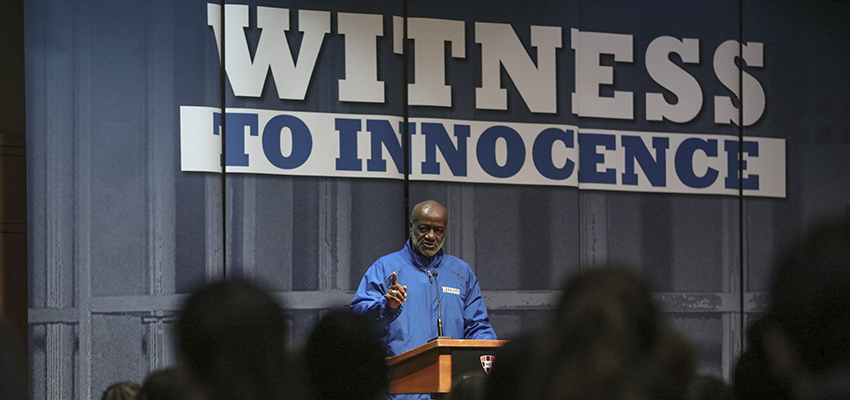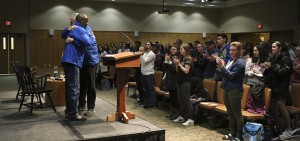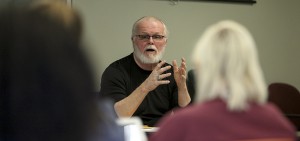
Witness to Innocence
13 March 2019 Witness to Innocence

Associate Professor of Sociology James Sutton, who has been instrumental in organizing a speaker series related to crime, victimization and injustice on the HWS campus, says the event was instructive in showing how extreme cases can reveal structural problems.
“When contemplating cases like these, one may be inclined to assume that they are isolated incidents. Unfortunately, they may instead be the tip of the iceberg,” Sutton says. “When systematic bias or unreliable evidence leads us to almost execute an innocent person, we should be asking how and where else these same dynamics may potentially be unfolding.”
Graham grew up on a plantation in the segregated south of the 1950s. While in a California prison, he became a leader of the Black Prison Movement and was framed for the murder of a prison guard in 1973. Graham was eventually found innocent and released from prison in 1981. He now offers lectures on the death penalty, the criminal justice system, racism and gang violence around the world.
Bloodsworth was the first person in the U.S. to be exonerated from death row by DNA testing, when the Maryland Court of Appeals overturned his conviction in 1986, finding that the prosecution had illegally withheld exculpatory evidence from the defense. Bloodsworth was retried, convicted again, and sentenced to two life terms. He spent nine years in prison before DNA tests incontrovertibly established his innocence. Bloodsworth was granted a full pardon.

Bloodsworth previously spoke at the Colleges to a standing-room-only crowd in 2015 that was coordinated by Sutton and Associate Professor of Sociology Kendra Freeman. Sutton says the dialogue had a “profound influence on a number of students,” who went on to pursue internships, take courses on crime and justice, do volunteer work, as well as pursue graduate study and careers related to criminology and criminal justice. He hopes the upcoming events will spark a similar passion for justice among students.
Through public speaking, testifying in state legislatures, media work and active participation in the nation’s cultural life, Witness to Innocence members, like Graham and Bloodsworth, are working to end the death penalty by educating the public about innocence and wrongful convictions. Witness to Innocence also provides an essential network of peer support for the exonerated, most of whom received no compensation or access to reentry services when released from death row.
